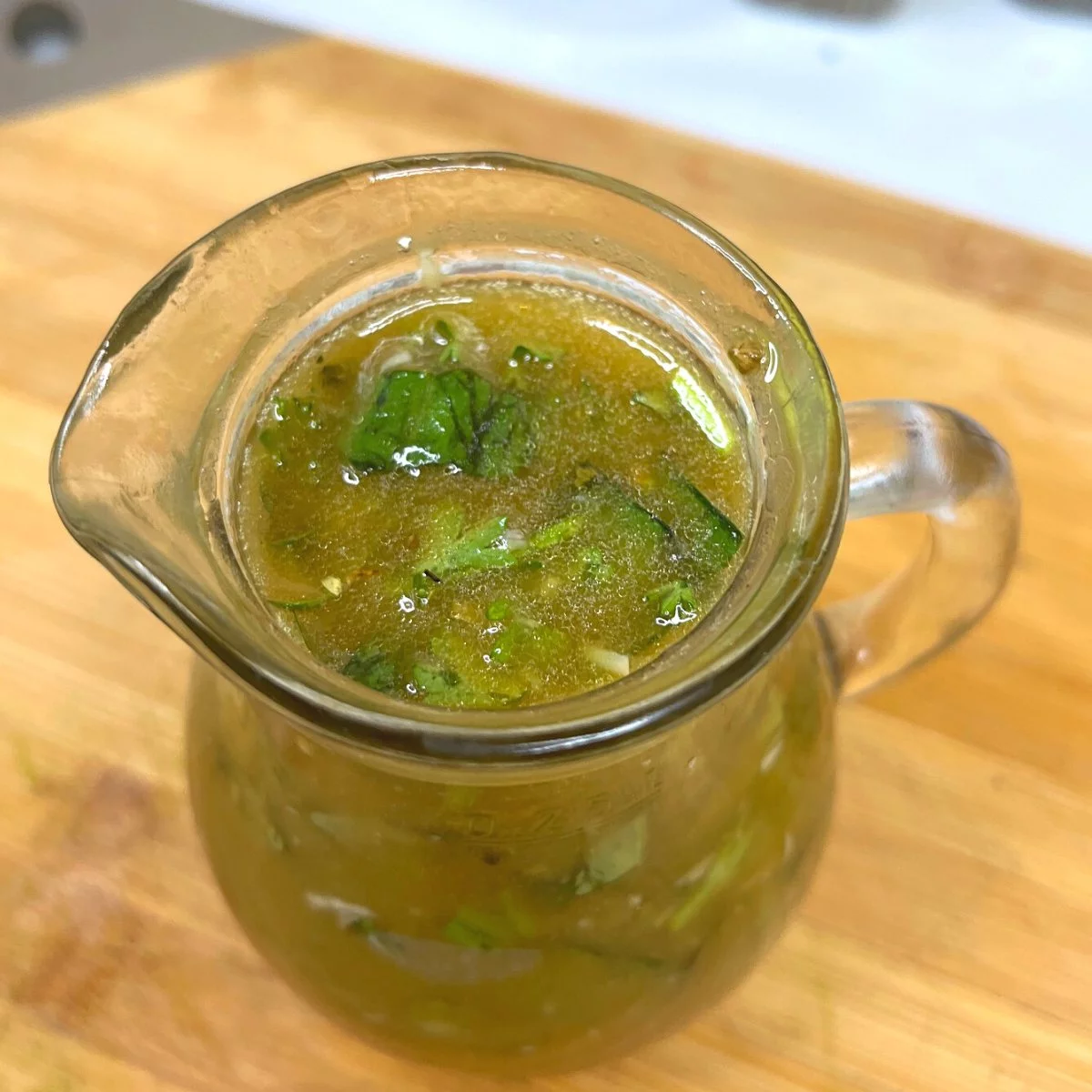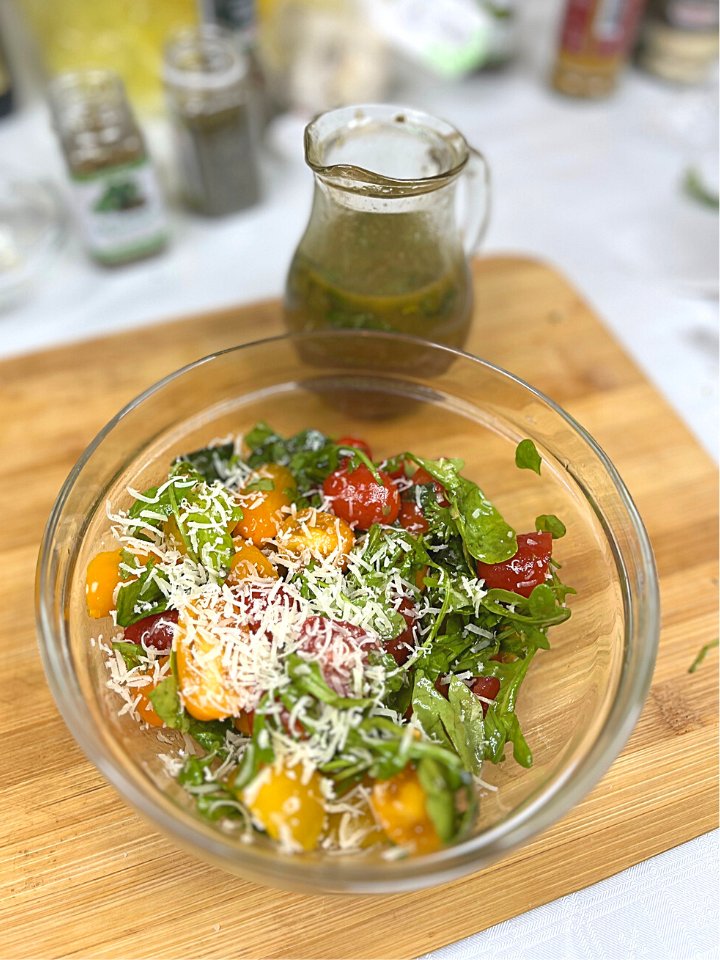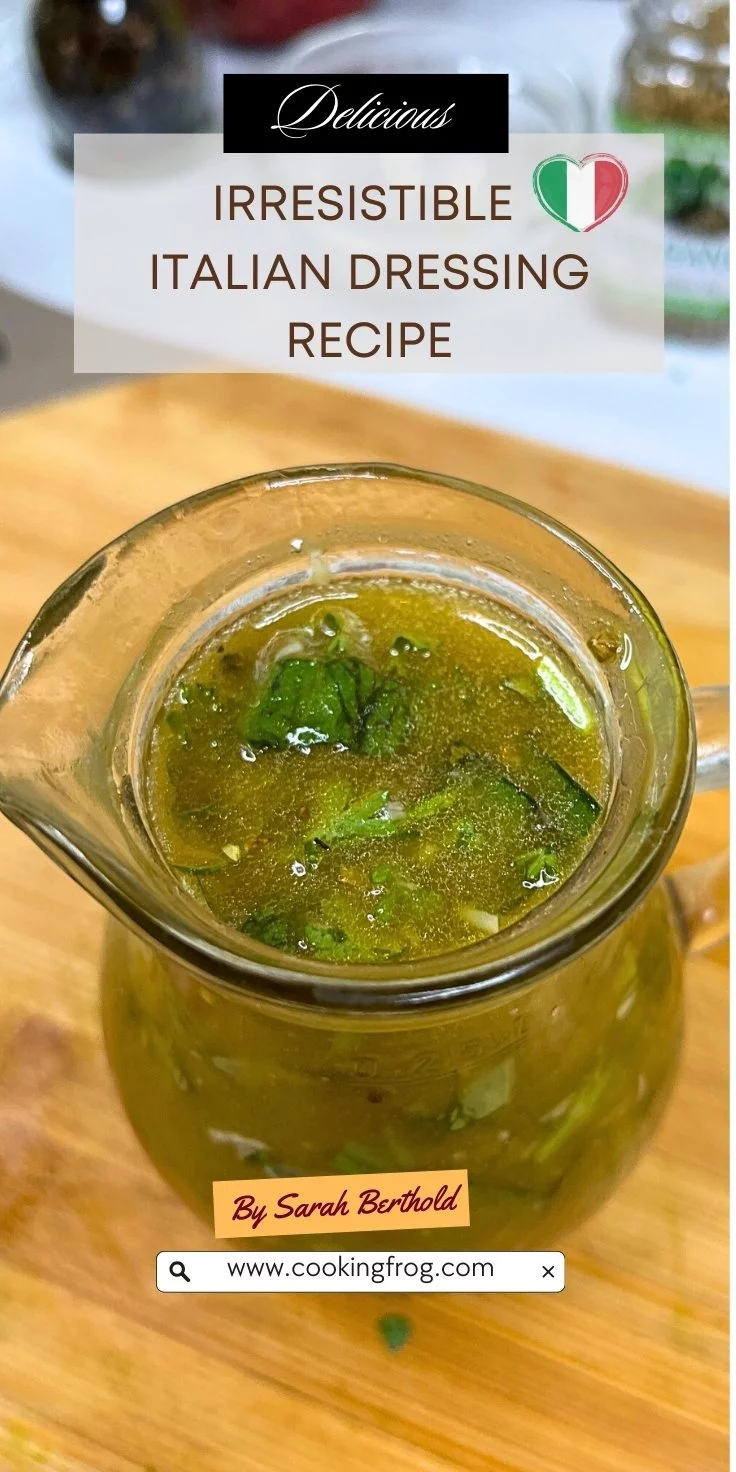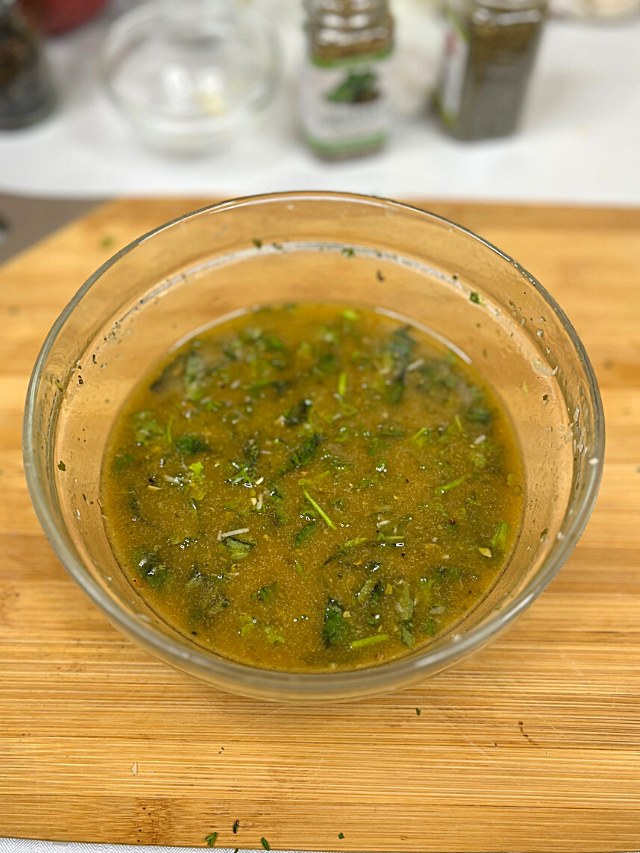Discover the simple pleasure of creating your own Italian dressing. Fresh, customizable, and free from preservatives, this recipe is a delightful twist to your meals, offering a healthier and tastier alternative to store-bought versions.
This recipe is crafted for those who cherish the essence of homemade cooking, offering a blend of flavors that bottled dressings can hardly match. You can expect a dressing that is not only easy to make but also elevates any dish it accompanies.
Whether drizzled over a crisp salad, used as a zesty marinade, or added to your favorite grain bowl, this dressing promises to be a versatile and flavorful addition to your culinary repertoire. Its freshness, simplicity, and the joy of creating something from scratch is what makes this recipe a game-changer in home cooking.
Italian Dressing Recipe
Ingredients
- Extra-Virgin Olive Oil (¼ cup)
- White Wine Vinegar (2 tbsp)
- Balsamic Vinegar (1 tsp)
- Fresh Lemon Juice (2 tbsp)
- Dijon Mustard (½ tsp)
- Fresh Garlic (1 clove, grated)
- Honey (1 tsp)
- Fresh Parsley (1 tbsp, chopped)
- Dried Oregano (1 tsp) and thyme (½ tsp)
- Fresh Basil (1 tbsp, chopped)
- Sea Salt and Black Pepper to your liking
- Optional: Grated Parmesan (2 tbsp)
Instructions
- Combining the Base: Start by pouring the extra-virgin olive oil into a medium-sized mixing bowl.
- Adding Acidity and Flavor: Whisk in the white wine vinegar, balsamic vinegar and lemon juice.
- Incorporating Seasonings: Add the finely grated fresh garlic, Dijon mustard, honey or maple syrup, chopped parsley, dried oregano, thyme, and basil.
- Seasoning: Sprinkle in sea salt and freshly ground black pepper. These should be added gradually and tasted along the way to ensure the right balance.
- Emulsifying the Dressing: Whisk all the ingredients vigorously until the dressing becomes homogeneous. This process, known as emulsification, combines the oil and vinegar, which typically do not mix well, into a smooth, unified dressing.
- Optional Enhancements: If you’re including Parmesan, gently stir it in last. The cheese adds a savory, umami depth, but can be omitted for a vegan or dairy-free version.
- Taste Test: Finally, taste the dressing and adjust any ingredients as needed. Sometimes a little more salt, a squeeze of lemon, or an extra dash of herbs can make all the difference.
If this Italian salad dressing recipe added flavor to your kitchen, pin it on Pinterest to refer back to it easily for your next culinary creation!
Italian Dressing Recipe Variations
- Sicilian Twist: Add a teaspoon of capers and a pinch of crushed red chili flakes. The capers will introduce a briny depth, while the chili adds a subtle heat, reminiscent of Sicilian flavors.
- Tuscan Herbs: Incorporate a mix of fresh Italian herbs like rosemary, sage, and marjoram. These herbs are staples in Tuscan cuisine and will add a robust, earthy flavor to the dressing.
- Lemon-Basil Infusion: Increase the amount of lemon juice and add extra fresh basil. This variation will have a more pronounced citrus and basil flavor, which is great for light, summer salads.
- Creamy Parmesan Version: Blend in a tablespoon of mayonnaise or Greek yogurt along with finely grated Parmigiano-Reggiano. This creates a creamier texture and a rich, cheesy flavor.
- Balsamic Reduction Boost: Instead of regular balsamic vinegar, use a balsamic reduction for a more intense, slightly sweet flavor. This works well with heartier salads or as a marinade.
Versatile Uses of Italian Dressing
1. Classic Salad Dressing: Drizzle it over a mix of fresh greens, cherry tomatoes, cucumbers, and olives for a classic Italian salad. The dressing’s acidity and herbs complement the freshness of the vegetables.
2. Marinade for Proteins: Italian dressing is excellent for marinating pork, chicken, fish, or tofu. The acids in the dressing help tenderize the protein, while the herbs and garlic infuse it with flavor.
3. Roasted Vegetables: Toss vegetables like zucchini, bell peppers, and eggplant in the dressing before roasting. It adds a delicious Italian twist to your roasted veggie dishes.
4. Pasta Salad Enhancer: Mix the dressing into cold pasta salads. It pairs beautifully with ingredients like mozzarella, sun-dried tomatoes, and fresh basil.
5. Sandwich Spread: Use it as a flavorful spread on Italian sandwiches or paninis, adding a zesty touch to your lunch.
Proper Storage and Shelf Life
Storing Your Dressing: Immediately store your homemade Italian dressing in an airtight container or a jar with a tight-fitting lid, preferably glass, and refrigerate.
Shelf Life: When stored in the refrigerator, the dressing remains fresh for up to one week.





